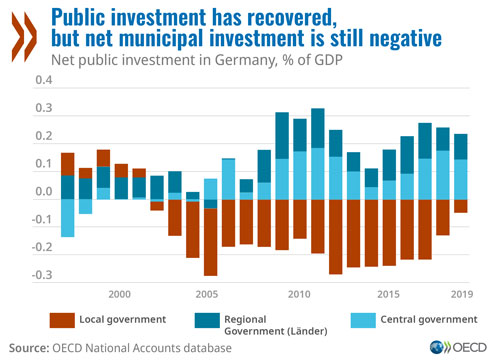GERMANY WILL INVEST $5.6 BILLION IN DIGITAL INFRASTRUCTURE: The German education minister said on Wednesday that the government would invest an additional 5 billion euros ($5.6 billion) over the next five years to provide faster internet, wireless access points, and tablet computers to more than 40,000 schools and organisations. Germany has shown that it is more likely to cave in to international pressure to spend its record budget surplus on infrastructure and education with the investment plan, which still has to be approved by Chancellor Angela Merkel’s cabinet.
“We need to take a huge step forward to encourage digital education,” stated German Education Minister Johanna Wanka. She also said that federal monies would be available to the country’s 16 federal states to assist with this. German pupils have performed poorly in recent global education studies, although some assessments demonstrate that they are reducing the gap.
According to a recent assessment on digital education in Germany, just approximately 2% of kids get regular access to a computer at school. For years, the IMF and OECD have urged Germany to increase public and private investment in order to improve domestic demand and reduce the country’s massive current account surplus.
Close allies such as France and the United States have pressed Germans to provide more funds. In response, the German government has increased infrastructure spending and assisted a record number of migrants here settling in.
Critics argue that Germany could do a lot more, such as abandoning Finance Minister Wolfgang Schaeuble’s objective of a balanced budget and borrowing more money at record low interest rates.
The cabinet accepted Schaeuble’s proposal to reduce income taxes by 6.3 billion euros in 2017 and 2018. Last week, Schaeuble and Merkel unveiled a proposal to halt “cold progression,” often known as “bracket creep,” in the tax system.
Germany, unlike many other nations, does not automatically adjust its tax levels to account for inflation. As a result, workers who get raises may find themselves with less money in their wallets.
You may like reading following news:
Mukesh declared heir to Ambani empire
Health department’s new guidelines to stop irregularities
All services of Transport Department are now online
The high court returned the list given by the primary education board
Modi and Amit Shah targeted by Nitin’s com

Bimal Mardi is a Professional Content Writer. He works in First Santal Broadcast Network TV/ News channel in India. Bimal Mardi writes about Technology, Education and Tech Product Reviews



![Intel says that both Intel and AMD CPUs can update Arc GPU firmware [Updated]](https://wishmatv.com/wp-content/uploads/2022/11/Intel-says-that-both-Intel-and-AMD-CPUs-can-update-Arc-GPU-firmware-Updated-360x240.jpg)
